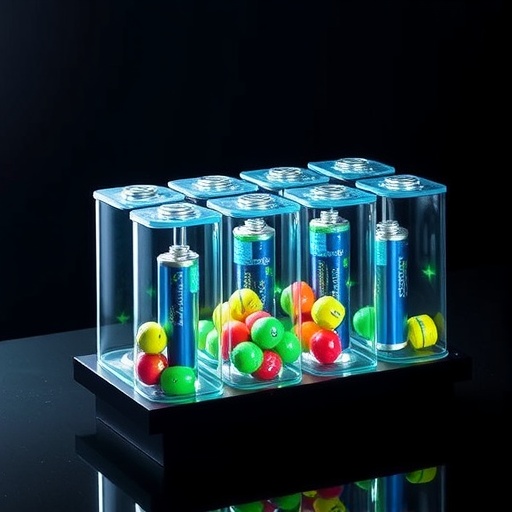The realm of energy storage has witnessed a remarkable transformation over recent years, driving innovations that provide significant advancements in various applications. The burgeoning demand for efficient energy systems has led researchers to explore new materials and technologies to enhance the performance of traditional storage devices. As societies pivot towards more sustainable energy models, understanding the intricacies of batteries and capacitors becomes ever more critical.
Batteries have long been the cornerstone of energy storage technologies. These electrochemical devices convert chemical energy into electrical energy, enabling a vast array of applications, from powering handheld devices to electric vehicles. Recent advancements have not only enhanced their efficiency but have also led to the development of new battery chemistries that improve safety and longevity. Lithium-ion batteries continue to dominate the market due to their high energy density and long cycle life; however, researchers are working tirelessly to find alternatives that can outperform them in terms of sustainability and cost-effectiveness.
.adsslot_0gS2N6Oia9{ width:728px !important; height:90px !important; }
@media (max-width:1199px) { .adsslot_0gS2N6Oia9{ width:468px !important; height:60px !important; } }
@media (max-width:767px) { .adsslot_0gS2N6Oia9{ width:320px !important; height:50px !important; } }
ADVERTISEMENT
Capacitors, on the other hand, are revered for their ability to deliver rapid bursts of energy, making them ideal for applications requiring quick discharge, such as in regenerative braking systems in electric vehicles. Unlike batteries, capacitors store energy in an electric field rather than through chemical reactions, allowing for faster charge and discharge cycles. Recent developments in supercapacitor technology have led to enhanced energy storage capabilities, enabling these devices to fill the gap between traditional batteries and ultrafast energy delivery systems.
Emerging materials are at the forefront of the advancements in both batteries and capacitors. Nanomaterials, for instance, have shown exceptional promise by enhancing conductivity while minimizing weight. The incorporation of carbon-based nanomaterials, such as graphene and carbon nanotubes, has improved the overall performance of these devices, leading to faster charge times and increased energy capacity.
Furthermore, advancements in electrode materials are crucial in shaping the future of energy storage. Transition metal oxides and conductive polymers have emerged as suitable candidates for next-generation batteries and capacitors, enhancing charge storage capabilities while maintaining structural integrity over numerous cycles. These innovative materials not only improve performance but also address the environmental impacts associated with traditional materials.
The importance of recycling and sustainable sourcing of battery materials cannot be overstated. As the demand for energy storage devices continues to rise, ensuring that resources are sourced responsibly is paramount. Researchers are now focusing on developing technologies that facilitate the recycling of lithium, cobalt, and nickel, among other critical materials. By creating closed-loop systems, the sustainability of energy storage technologies can be bolstered, significantly reducing their environmental footprint.
Emerging applications for batteries and capacitors also extend beyond consumer electronics and electric vehicles. Energy storage systems integrated with renewable energy sources, such as solar and wind, are becoming increasingly prevalent. These systems enable the capture and storage of excess energy generated during peak production times, which can then be utilized during periods of low production. This not only enhances the reliability of renewable energy but also contributes to grid stability.
The role of energy storage technologies in smart grid systems cannot be overlooked. As cities evolve towards smart infrastructure, energy storage solutions become vital in managing energy distribution and consumption efficiently. Batteries and capacitors are key to balancing supply and demand, integrating decentralized energy resources, and providing backup power during outages, thereby enhancing energy security.
The research landscape in energy storage is rapidly evolving, with universities and institutions around the world engaging in collaborative projects aimed at pushing the boundaries of current technologies. These partnerships often lead to groundbreaking studies that focus on the intersections of material science, engineering, and environmental sustainability. By aligning academic research with industry needs, stakeholders can accelerate the development of next-generation energy storage systems.
As the world moves towards electrification and decarbonization, the impact of advancements in energy storage cannot be underestimated. The integration of innovative battery and capacitor technologies presents a pathway toward a more sustainable future. With continued investment and research, the challenges facing energy storage, from material limitations to recycling processes, can be addressed swiftly, ensuring that clean energy remains accessible to all.
In conclusion, the advancements in energy storage, particularly in the domains of batteries and capacitors, promise to reshape our energy landscape profoundly. By fostering a holistic approach that involves material innovation, sustainability practices, and diverse applications, researchers and industry leaders are setting the stage for a future that prioritizes efficiency and environmental responsibility. As we stand on the brink of this new era in energy technology, the possibilities seem limitless, heralding a brighter, greener tomorrow.
Subject of Research: Advancements in Energy Storage Technologies
Article Title: Advancements in energy storage: a review of batteries and capacitors—properties, materials, and emerging applications
Article References:
Phogat, P., Thakur, J., Shreya et al. Advancements in energy storage: a review of batteries and capacitors—properties, materials, and emerging applications.
Ionics (2025). https://doi.org/10.1007/s11581-025-06588-4
Image Credits: AI Generated
DOI: https://doi.org/10.1007/s11581-025-06588-4
Keywords: Energy storage, batteries, capacitors, innovation, sustainable technology, solid-state batteries, supercapacitors, nanomaterials, electrode materials, recycling, renewable energy, smart grid, material science.
Tags: advancements in battery technologycapacitor applications in energy systemsefficient energy systemselectrochemical energy conversionenergy density improvementsenergy storage innovationsfuture of energy storage technologieslithium-ion battery alternativeslongevity of energy storage devicessafety in battery technologysolid-state battery developmentsustainable energy solutions





